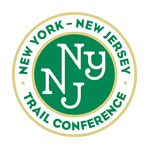Impacts of Emerald Ash Borer and Implications for Restoration
Dr. Kathleen Knight, U.S. Forest Service
Register Here (free):
https://attendee.gotowebinar.com/register/6970014617698381570
About the Presentation
The emerald ash borer, an invasive insect, has spread from its initial introduction in Michigan and killed millions of ash trees across the region. All six ash species native to its introduced range are susceptible to this pest, and the impacts of the pest differ in the different kinds of ecosystems inhabited by these different ash species. In particular, riparian areas dominated by green ash, and northern swamp forests dominated by black ash may experience rapid pronounced changes. Invasive plant species may be facilitated by gaps created by dying ash trees. Several experiments and studies are informing restoration strategies for ash forests, including underplanting of replacement tree species to maintain ecosystem function. In the long term, the ash resistance breeding program hopes to produce genetically diverse ash trees with resistance to emerald ash borer to restore ash species and the ecosystems they inhabit.
About the Presenter
Dr. Kathleen Knight is an expert in ecology and forest restoration.
Her research produces critical information about the effects of invasive species on forest ecosystems and provides tools and strategies to respond to these threats, including planting of resistant trees. Her research includes studies of invasive buckthorn, black cherry (in Poland), emerald ash borer, and Dutch elm disease.
She is a collaborator on the ash resistance breeding program and a co-leader of the American elm resistance breeding program.
About the Series
The Interagency Ecological Restoration Quality Committee hosts monthly Webinars in an effort to bring restoration practitioners from across the country together to present and discuss the innovations aimed at improving the quality of ecological restoration data. Presentations are approximately 45 minutes in length, followed by open discussion.

